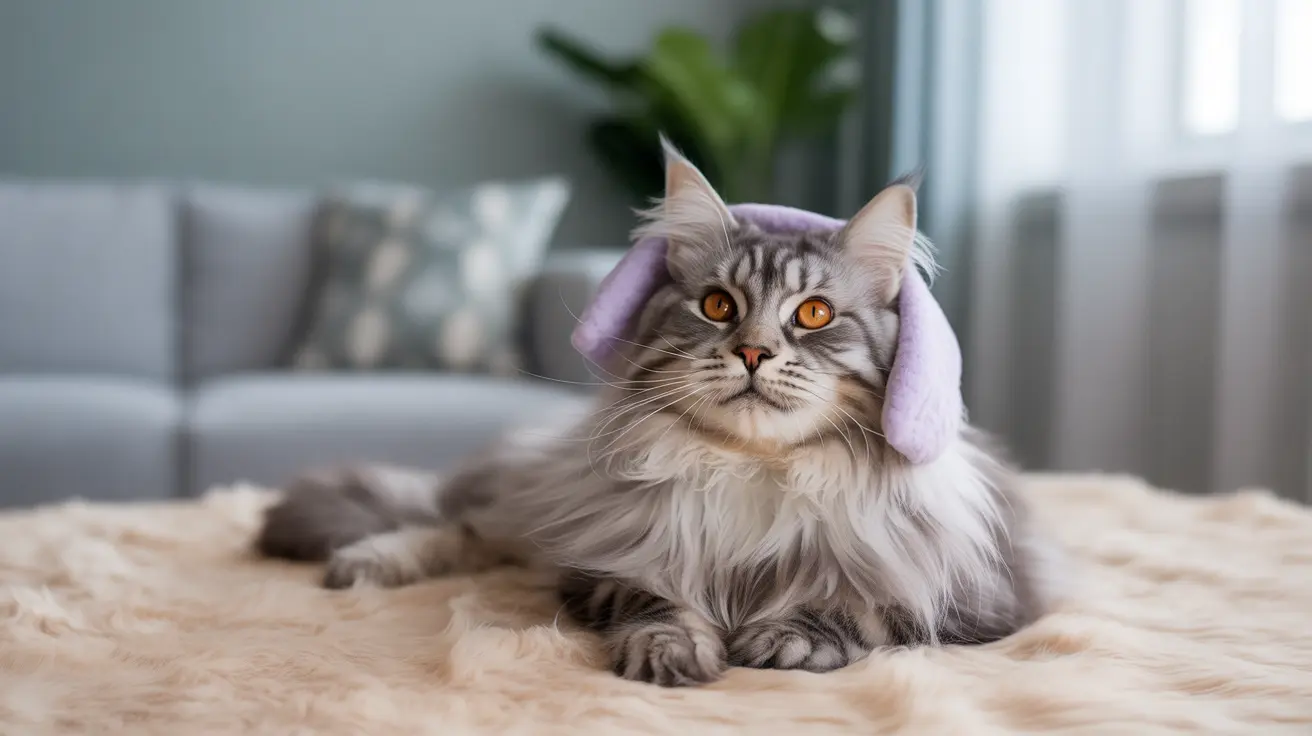Understanding Cat Conjunctivitis
Cat conjunctivitis, commonly known as "pink eye," is a condition where the conjunctiva (the tissue lining the eye and eyelids) becomes inflamed. While some pet owners wonder if cat conjunctivitis will go away by itself, the answer isn't always straightforward and depends on several factors.
This comprehensive guide will help you understand when cat conjunctivitis might resolve naturally and when veterinary intervention is necessary to prevent complications and ensure your feline friend's optimal eye health.
Can Cat Conjunctivitis Resolve Without Treatment?
While some mild cases of cat conjunctivitis, particularly those caused by viruses, may resolve on their own, waiting it out isn't always the safest approach. Viral conjunctivitis, especially from feline herpesvirus-1 (FHV-1), might show some improvement without medication, but there are significant risks to consider:
- Secondary bacterial infections can develop
- Underlying conditions might be missed
- Permanent eye damage could occur if left untreated
- Recovery time may be significantly longer without proper care
When Veterinary Care Is Essential
Certain situations require immediate veterinary attention, regardless of whether cat conjunctivitis might go away by itself:
- Severe eye redness or swelling
- Thick, colored discharge
- Signs of pain or intense discomfort
- Changes in vision or eye appearance
- Symptoms lasting more than 24-48 hours
- Involvement of both eyes
- Concurrent upper respiratory symptoms
Types and Causes of Cat Conjunctivitis
Understanding the cause of conjunctivitis is crucial in determining whether it will resolve naturally:
Viral Conjunctivitis
- Most common cause
- May show some self-resolution
- Often requires supportive care
- Can become chronic or recurring
Bacterial Conjunctivitis
- Usually requires antibiotic treatment
- Rarely resolves without medication
- Can worsen quickly if untreated
Allergic Conjunctivitis
- May improve with allergen removal
- Often needs medical management
- Can become chronic without treatment
Treatment Options and Recovery
Even when cat conjunctivitis might resolve naturally, treatment can speed recovery and prevent complications:
- Antibiotic eye drops for bacterial infections
- Antiviral medications for severe viral cases
- Eye lubricants for comfort and healing
- Clean eyes regularly with warm compresses
- Immune support supplements when recommended
Prevention and Long-term Management
To prevent recurrence and manage chronic cases:
- Maintain regular veterinary check-ups
- Keep your cat's living area clean
- Reduce environmental stress
- Support immune health through proper nutrition
- Monitor for early signs of flare-ups
Frequently Asked Questions
Will cat conjunctivitis go away by itself without treatment?
While mild cases might resolve naturally, particularly viral ones, most cases benefit from veterinary care to prevent complications and ensure proper healing.
How can I tell if my cat's conjunctivitis needs veterinary care?
Seek veterinary care if you notice severe redness, thick discharge, signs of pain, or if symptoms persist beyond 24-48 hours.
What are the common causes of conjunctivitis in cats and how do they affect treatment?
Common causes include viruses (especially FHV-1), bacteria, and allergies. The treatment approach varies based on the cause, making proper diagnosis essential.
What home care steps can I take to help my cat recover from conjunctivitis?
Keep the eyes clean with warm compresses, maintain a clean environment, and follow all veterinary recommendations carefully.
Can viral conjunctivitis in cats, like from herpesvirus, recur and require ongoing management?
Yes, viral conjunctivitis, especially from FHV-1, can become chronic or recurring, requiring long-term management strategies and regular monitoring.
Conclusion
While cat conjunctivitis may sometimes show signs of self-resolution, seeking proper veterinary care is usually the safest approach. This ensures accurate diagnosis, appropriate treatment, and the best possible outcome for your cat's eye health. Remember that early intervention often leads to faster recovery and helps prevent potential complications.






